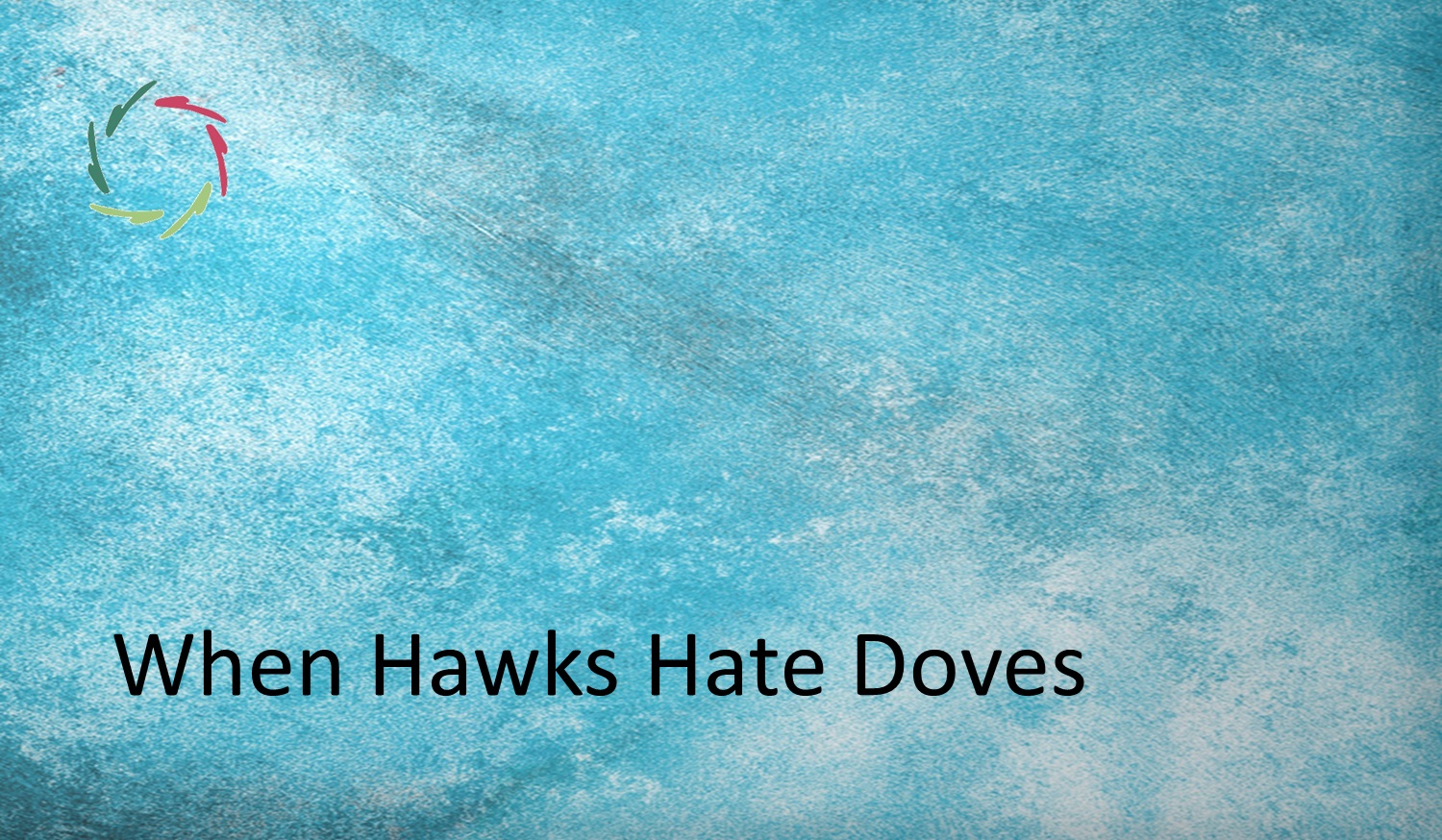When Hawks Hate Doves

Nothing of the title fits. Yet it says it all, with some symbolic translation: Big egos sometimes cannot stand more depth-oriented people very well. This blog is a deeper look into ego, depth, and growth.
In the journey of personal growth, one quickly realizes that not everyone shares the same depth-oriented approach. As a symptom of their Inner Dissociation, some may even feel threatened by it. This blog also contains advice about how to deal with the phenomenon.
Projection: a mirror of inner struggles
Often, when faced with someone more dove-like, the hawk will project inner fears onto them. This projection is not necessarily conscious but can manifest as discomfort, hostility, or even avoidance. You might find yourself in the role of the “dove,” becoming the target of another’s shadow, which they see in you because it reflects what they haven’t addressed in themselves.
Advice: Stay cautious, and don’t take this projection personally. Recognize it for what it is – a reflection of their inner conflict – and resist the urge to react defensively. Instead, gently reflect the light of Compassion, even if it goes unseen.
The dance of conflict and growth
Human interaction, especially between hawk and dove, can feel like a dance. Hawks may seem more comfortable around each other, thriving in a space where ego battles ego. However, between a hawk and a dove, the challenge is more significant. Your depth as a dove may be viewed as unsettling or even menacing to the ego of the hawk.
Advice: Don’t expect the hawk to become a dove. Instead, assertively hold your ground without aggression, showing the possibility of depth while allowing them to observe without pressure. Growth is never forced. Keep inviting, but without coercion.
Assertiveness: the strength of the dove
Assertiveness doesn’t mean aggression. As a dove, your strength comes from within, from the deeper self. It’s important to remain assertive, standing in your own power while allowing space for others’ reactions, whether they are hawkish or not.
Advice: Being a dove among hawks takes strength, perhaps even more than being a hawk among hawks. This inner strength should not falter. Assert your values and your depth without pushing for others to change. True assertiveness is about maintaining your own path without being swayed.
Staying Compassionate, staying strong
Conflicts with those who don’t understand or share your depth can be draining, but they are also opportunities for Compassion. The hawk needs understanding just as much as the dove does. The key is not to let yourself be drawn into a battle or retreat into weakness but to stand firm and stay true to your deeper self.
Advice: Congratulate yourself for staying on course, even when faced with misunderstanding or rejection. Each time you hold your dove-like nature without succumbing to hawkishness, you are growing stronger. In the long run, this deep inner strength will outlast the reactive defenses of the hawk.
As you continue your journey, remember that being a dove in a world of hawks is no easy feat.
However, it is deeply rewarding. Each moment of maintaining your depth, assertiveness, and Compassion is a step toward lasting inner strength.
Invite others, through your example, to explore their depth without imposing it. Growth comes from within, and by staying true to yourself, you not only honor your path but inspire those around you. Stay strong, stay gentle, and keep inviting the world into a deeper understanding.
Your presence matters more than you know.


